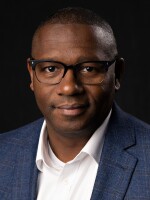Listening to the news, it feels like there are more natural disasters than ever. This hour, we return to conversations about why flooding and droughts are becoming so common and how the word "disaster" affects the way we view an event. First, Connecticut State Historian Andy Horowitz explains why understanding disasters involves looking at the decisions people made before the devastation, sometimes decades before. And Professor Mohammed Ombadi breaks down the science behind how climate change is causing an increase in extreme weather.
GUESTS:
- Andy Horowitz: Associate Professor of History at UConn, Connecticut State Historian, author of 'Katrina: A History, 1915-2015'
- Mohammed Ombadi: Assistant Professor in the department of Climate and Space Sciences and Engineering at the University of Michigan
Special thanks to interns Lateshia Peters and Joey Morgan.
This episode originally aired on November 8, 2023.
Disrupted is available as a podcast on Apple Podcasts, Amazon Music, Spotify, TuneIn, Listen Notes, or wherever you get your podcasts. Subscribe and never miss an episode.
A note to our radio listeners: Starting the week of September 23, Disrupted will move from Wednesdays at 2:00 PM to Fridays at 9:00 AM and a rebroadcast at 8:00 PM, plus our Sunday at 2:00 PM rebroadcast.











